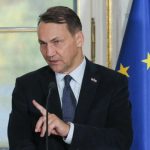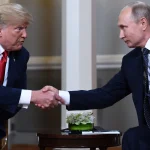Iran’s Supreme Leader Ayatollah Ali Khamenei has formally rejected an offer from U.S. President Donald Trump to reopen talks on Tehran’s nuclear program, accusing Washington of dishonesty and denying U.S. claims that Iranian nuclear capabilities have been neutralized.
Khamenei’s comments come in the wake of a 12-day joint U.S.-Israeli air campaign in June that targeted multiple Iranian nuclear sites, an operation the White House claims “significantly degraded” Tehran’s nuclear infrastructure. Iran, however, maintains that its nuclear program remains intact and continues to operate for civilian energy purposes.
“We will not be deceived by smiles after sabotage and aggression,” Khamenei said in a televised address. “America cannot destroy our resolve through bombs or false offers of diplomacy.”
Trump’s Push for New Dialogue
President Trump last week told Israel’s Knesset that it would be “great” if the United States could negotiate a peace deal with Tehran, following the recent ceasefire in Gaza between Israel and Hamas.
The statement came amid reports of quiet diplomatic outreach from Washington, seeking to revive engagement with Iran after five rounds of failed indirect nuclear talks earlier this year.
“The door is open,” Trump said. “We want peace with Iran, and we think we can get there not with weakness, but with strength.”
Stalemate Over Enrichment
Western powers including the U.S., UK, France, and Germany continue to accuse Iran of pursuing a covert nuclear weapons program, citing uranium enrichment levels that far exceed the limits set under the defunct 2015 Iran Nuclear Deal (JCPOA).
Tehran has repeatedly denied any intention to develop a nuclear bomb, insisting that its enrichment activities are entirely for energy generation, medical use, and scientific research.
“We do not seek nuclear weapons they are against our religion and our national doctrine,” said Iran’s Foreign Ministry spokesperson.
Context: Airstrikes and Ceasefire
The June air war, carried out by the U.S. and Israel, marked the most direct military confrontation with Iran in recent years. The strikes reportedly targeted uranium enrichment facilities and missile development sites across Isfahan, Natanz, and Fordow.
Shortly after the air campaign ended, a ceasefire in Gaza was brokered between Israel and Hamas, raising hopes for a broader regional de-escalation. Trump’s overture to Iran is widely seen as part of a broader strategy to stabilize the Middle East.
utlook Uncertain
With Khamenei’s outright rejection and no formal talks on the horizon, prospects for a U.S.-Iran détente remain bleak. Analysts warn that continued Western pressure could push Tehran closer to its nuclear threshold, while further military strikes risk sparking direct conflict in the region.



